A healthy, active Golden Retriever is a feast for the eyes, and their well-being depends on proper Golden Retriever Nutrition. Just like us, Golden Retrievers need a balanced diet to thrive. Understanding Golden Retriever Nutrition needs by age and size is crucial. From puppyhood to old age, their nutritional needs change significantly. Age and size play an important role in choosing the right diet and portions. That’s why it’s important to look beyond general nutritional recommendations for Golden Retriever Nutrition.
Unfortunately, there are many misconceptions about Golden Retriever Nutrition, especially when it comes to the different life stages. Some people believe that puppies need endless amounts of Food to grow, while others are convinced that older dogs automatically need less food. It’s time to debunk these myths and provide clear, practical advice on Golden Retriever Nutrition. This blog is a comprehensive guide to Golden Retriever Nutrition, covering everything from puppy development to caring for your dog as he or she ages. We address the specific nutritional needs of each stage of Golden Retriever Nutrition, provide practical feeding advice, and help you make informed decisions to ensure your Golden Retriever lives a long, healthy, happy life through optimal Golden Retriever Nutrition.
Contents
Golden Retriever Nutritional Needs by Age
With their boundless enthusiasm and loyalty, Golden Retrievers require individualized nutritional support throughout their lives. Their nutritional needs change from rapid growth as puppies to a gradual slowdown as they get older. This requires careful consideration and informed decision making.
Puppyhood (0-12 months):
Nutrition for Growth and Energy Puppyhood is a period of rapid development that requires a diet rich in vital nutrients. Golden Retriever puppies are energetic dogs that need plenty of calories to grow and play happily. Protein is vital and is the building block of muscles, tissues, and organs. Choose a puppy Food that includes high-quality animal proteins as the main ingredient. Fats are equally important as they provide concentrated energy and support brain development.
Regular feeding is essential for puppies. In the first few months, they should be fed three to four times a day to maintain stable blood sugar levels and promote rapid growth. Once your puppy is almost six months old, you can gradually transition to two to three meals a day. Choosing the right puppy food is critical. Look for recipes specifically designed for large breeds, with balanced levels of calcium and phosphorus to promote healthy bone development. Trusted brands like Royal Canin, Purina Pro Plan, and Hill’s Science Diet offer excellent puppy food.
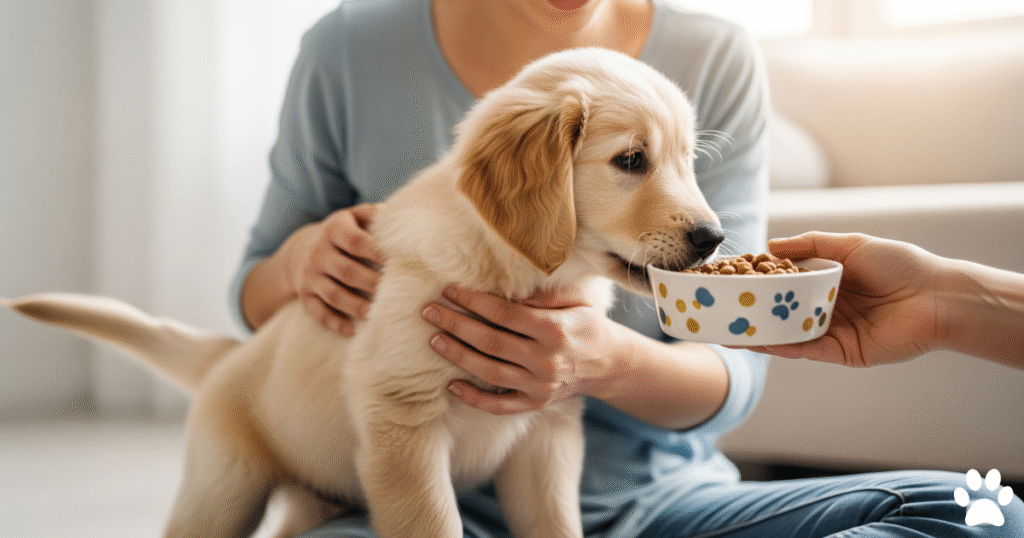
Adulthood (1-7 years):
Maintaining Ideal Weight and Vitality: As your Golden Retriever gets older, there is an increased focus on maintaining ideal weight and providing a balanced diet. Adult Golden Retrievers require a diet that includes adequate protein to maintain muscle mass, healthy fats for a shiny coat and good brain function, and complex carbohydrates for a steady supply of energy. As they get older, portion control becomes critical. Overfeeding can lead to obesity, which greatly increases the risk of joint problems and other health issues. Most adult Golden Retrievers need two meals a day, with portions appropriate for their weight, activity level, and metabolism.
Choosing the right Dog Food is a personal decision. Dry food is a popular, convenient, and affordable choice. Wet food has a higher moisture content, which can be helpful for hydration and picky eaters. Although raw food diets are becoming increasingly popular, they require careful planning and balancing to ensure nutritional value. Homemade meals give you complete control over the ingredients, but require a lot of time and effort. Grain-free diets are helpful for dogs with grain Food allergies, but are not necessary for all Golden Retrievers. Ask your veterinarian what type of food is right for your Golden Retriever.
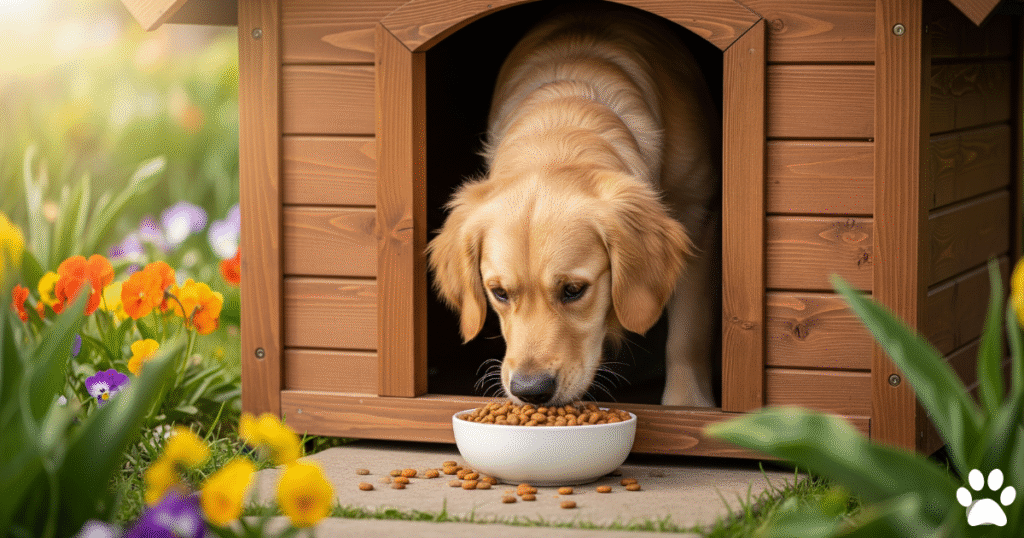
Senior (8+ years):
Supports joint health and longevity. As Golden Retrievers age, their metabolism slows and their energy levels decline. To prevent obesity and support their aging bodies, it is important to adjust their diet. Senior dogs often benefit from a diet that is lower in calories but higher in fiber and easily digestible protein.
Joint health is a major concern for older Golden Retrievers. Glucosamine and chondroitin supplements can help promote healthy cartilage and improve mobility. Omega-3 fatty acids in fish oil can reduce inflammation and promote healthy joints. Heart health is also very important. A balanced diet with adequate antioxidants can support cardiovascular health. Adjusting portion sizes is crucial to preventing weight gain, as weight gain can worsen age-related health problems. Senior dogs with sensitive stomachs may benefit from smaller, more frequent feedings. As oral health declines, it may also be necessary to switch to soft foods. Canned or wet foods are easier to chew and digest.
By choosing a specially formulated senior food from a reputable brand like Hill’s Science Diet, Purina Pro Plan Bright Minds, or Wellness Complete Health Senior, you can provide your Golden Retriever with the nutrients he needs to support his aging body. Regular checkups with your veterinarian are essential for retrievers health.
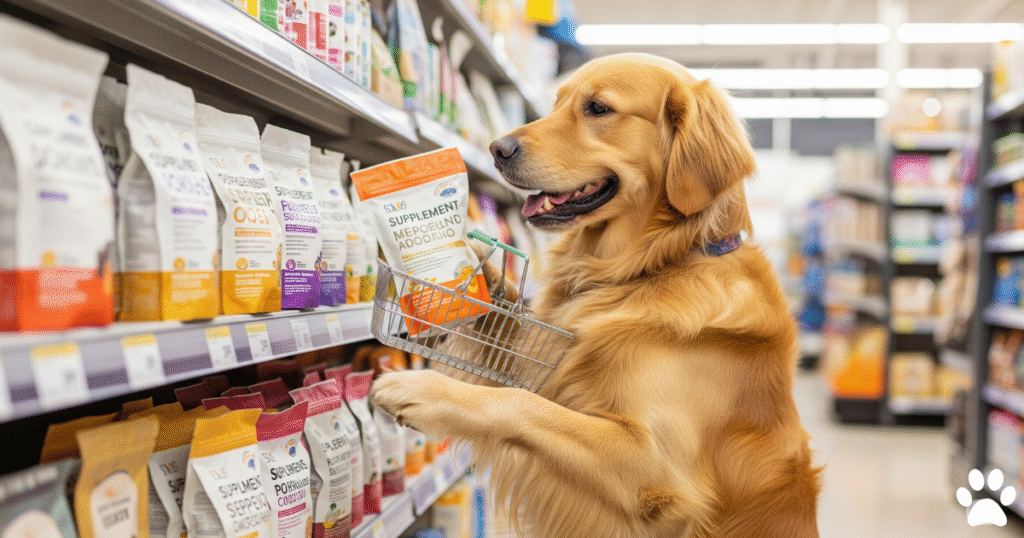
Nutritional Needs by Size and Weight
Golden Retrievers share the same breed name but vary in size and weight. This variation directly impacts the dog’s nutritional needs. This requires owners to tailor their feeding strategy to their dog’s size. By understanding these nuances, you can ensure that your Golden Retriever maintains a healthy weight, has plenty of energy, and thrives throughout its life.
Small Golden Retrievers (50-65 lbs):
Precise Portions and Metabolism Awareness Small Golden Retrievers, who typically weigh 50-65 lbs, may seem like they need less Food, but careful portion control is essential. Underfeeding can be just as harmful as overfeeding. It can lead to nutritional deficiencies and health problems. Metabolism plays an important role in food intake. Some smaller Golden Retrievers have naturally faster metabolisms and require slightly more calories to maintain their weight. It is important to monitor their body condition closely. If their ribs are clearly visible, this may indicate that they are undernourished. On the other hand, if you can barely feel their ribs, this may be a sign that you are eating too much. A balanced diet with high-quality proteins and healthy fats will increase your energy levels and improve your overall health.
Medium-Sized Golden Retrievers (55-60 lbs):
Balance Activity and Nutrition Medium-sized Golden Retrievers weighing between 55 and 60 pounds often embody the breed’s active and playful nature. Their nutritional needs are in line with this energy and require a balanced diet that supports your daily activities. It is important to adjust your food intake according to your activity level. A Golden Retriever who enjoys long walks, running, or swimming will need more calories than a Golden Retriever who is more sedentary. Monitor his weight and body condition regularly and adjust portions as needed. A diet rich in protein, healthy fats, and complex carbohydrates will give him energy for his adventures and help him feel energized.
Large Golden Retrievers (65–75+ Pounds):
Prioritize Healthy Joints and Muscle Mass Large Golden Retrievers weighing 65–75 pounds or more require special attention due to their size and risk of developing joint problems. Their large size places a lot of stress on their joints, so joint health is of the utmost importance. A diet enriched with glucosamine and chondroitin can promote healthy cartilage and prevent joint problems. Preventing obesity is also very important, as excess weight increases stress on the joints. Increased protein requirements are necessary to maintain muscle mass, especially as they age. High-quality protein sources increase your strength and mobility. Portion control is important to avoid overeating and maintain a healthy weight. Large breed supplements are often recommended because they provide balanced nutrients and meet the specific needs of animals.
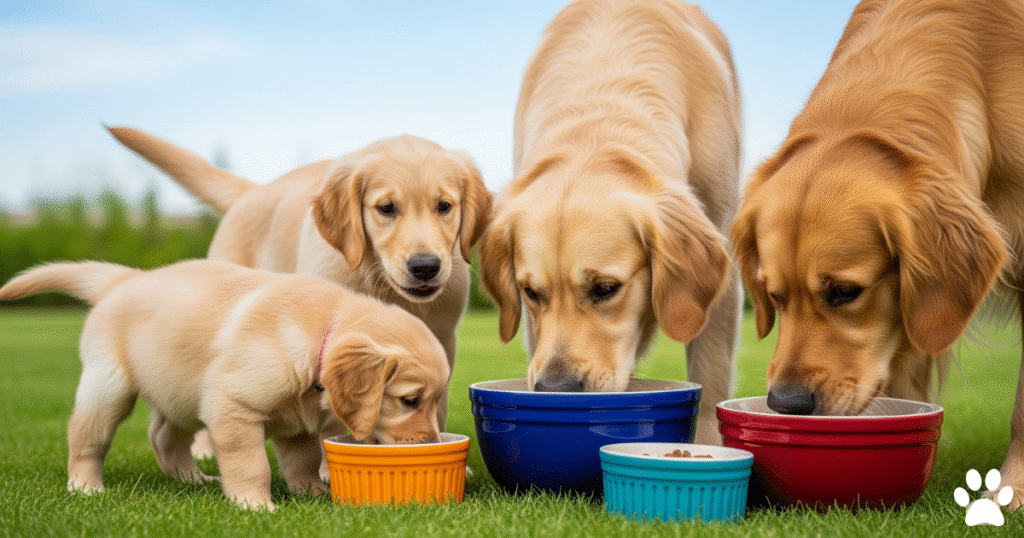
Nutritional Essentials at Every Life Stage
From playful puppy to dignified senior, the Golden Retriever’s life cycle is determined by a complex interaction of essential nutrients. It is important for every pet owner to understand these essential elements of health so that their beloved four-legged friend can thrive at every stage of life.
Protein:
The Foundation of Strength and Vitality Protein is the foundation of the Golden Retriever’s diet and plays an important role in the growth, repair, and maintenance of muscle mass. During puppyhood, when development is at its fastest, protein is essential for building strong muscles and tissues. Even in adulthood, it continues to play an important role in maintaining muscle mass and daily activity. Even in old age, adequate protein intake helps prevent muscle loss and maintain mobility. High-quality animal protein sources such as chicken, beef, fish, and lamb should make up the bulk of your Golden Retriever’s diet.
Fats:
Fuel, Energy, and Radiation Fats are a concentrated source of energy that provide your Golden Retriever with the fuel he needs to fuel his active lifestyle. They also play an important role in maintaining a healthy, shiny coat. Essential fatty acids, such as omega-3 and omega-6, promote healthy skin, reduce inflammation, and support brain function. They are found in sources such as fish oil, flaxseed oil, and chicken fat.
Carbohydrates:
A Boost of Energy When You Need It Carbohydrates provide readily available energy, especially during periods of high activity. Complex carbohydrates, such as sweet potatoes, brown rice, and oats, provide long-lasting energy and aid in digestion. Although carbohydrates are not as essential as proteins and fats, they play a supporting role in a balanced diet. However, carbohydrate intake should be carefully monitored in dogs with certain health issues or those prone to obesity.
Vitamins and Minerals:
The Unsung Heroes of Health Vitamins and minerals are essential for many functions in the body, including immune system support, bone health, and cell growth. They act as catalysts for various metabolic processes and ensure optimal health and vitality. A balanced diet, supplemented with high-quality dog food, should contain a wide range of vitamins and minerals. Calcium and phosphorus are essential for strong bones, while antioxidants such as vitamins C and E support immune function.
Water:
The potion of Life Water is an essential nutrient and is necessary for hydration, digestion, and organ function. Golden Retrievers, especially active breeds, need constant access to fresh, clean water. Dehydration can lead to serious health problems. That’s why it’s so important to drink plenty of water. Monitor your dog’s water intake, especially in hot weather or after intense exercise.
Adjust food intake based on activity level
Like athletes, Golden Retrievers require a diet tailored to their activity level. Exercise has a big impact on your dog’s nutritional needs and therefore requires a tailored approach to nutrition. A Golden Retriever who enjoys long runs, swimming, or playing actively will burn many more calories than a Golden Retriever who prefers leisurely walks or lounging indoors.
Here’s how exercise affects nutrient needs:
Exercise uses up energy reserves, which must be replenished by eating more calories. Very active dogs need a diet rich in protein and healthy fats to maintain muscle mass and produce energy. These nutrients nourish muscles, promote regeneration, and promote healthy hair and skin.
Adjust calorie intake for highly active and less active dogs:
A highly active Golden Retriever may need 20 to 30 percent more calories than a less active Golden Retriever. This means eating more or more frequently. Less active dogs, on the other hand, need fewer calories to avoid weight gain. Overfeeding a Golden Retriever that doesn’t get enough exercise can quickly lead to obesity and increase the risk of joint problems and other health issues.
Seasonal Changes in Food Intake:
Seasonal changes can also affect your Golden Retriever’s activity level and, therefore, their food intake. During warmer months, they may be more active and need more calories to complete their adventures. However, during colder months, they may be less active and need to eat smaller portions to avoid weight gain. Consider adjusting portions throughout the year based on your activity level to help maintain a healthy weight.
Tips for Success:
- Check your Golden Retriever’s weight and body condition regularly.
- Adjust portion sizes based on their activity level and any changes you notice.
- Provide a high-quality diet that meets their specific needs.
- Consult your veterinarian for personalized nutritional recommendations.
Conclusion
Determining your Golden Retriever Nutrition needs can seem like a journey through different life stages, each requiring specific dietary adjustments. From the high energy needs of a puppy who requires regular, protein-rich meals to the health maintenance needs of an adult dog and calorie intake adjustments as they age, understanding Golden Retriever Nutrition is essential. We’ll look at how age significantly impacts your Golden Retriever Nutrition and what dietary changes are necessary at each stage. Likewise, understanding the nuances of a size-appropriate Golden Retriever Nutrition diet will ensure optimal health, whether your Golden Retriever Nutrition plan involves a 50-pound lap dog or a robust 80-pound companion. Proper Golden Retriever Nutrition helps support their growth, energy, and overall well-being.
Remember, it’s important to continually monitor your Golden Retriever’s weight and body condition as part of Golden Retriever Nutrition management. Be prepared to adjust portions based on your activity level, seasonal changes, and potential weight fluctuations. While this guide provides valuable information about Golden Retriever Nutrition, every dog is unique. It’s crucial to consult with your veterinarian to develop a personalized Golden Retriever Nutrition plan that addresses specific health concerns and ensures your Golden Retriever is performing at his or her best throughout all stages of life.
Dr. Nabeel A.
Hi, I’m Dr. Nabeel Akram – a farm management professional by trade and a passionate Golden Retriever enthusiast at heart. With years of experience in animal science and livestock care, I’ve built a career around understanding animals—how they live, thrive, and bring value to our lives. This blog is a personal project born from that same passion, focusing on one of the most loyal and lovable breeds out there: the Golden Retriever. Whether I’m managing farm operations or sharing insights on canine health, behavior, and care, it all ties back to one core belief—animals deserve thoughtful, informed, and compassionate attention. Welcome to a space where professional expertise meets genuine love for dogs.
Facebook |
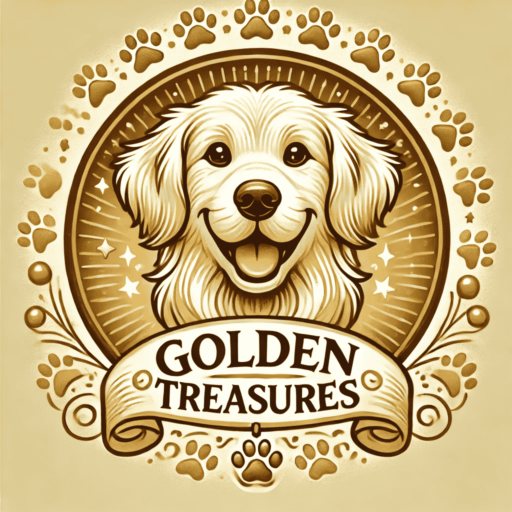
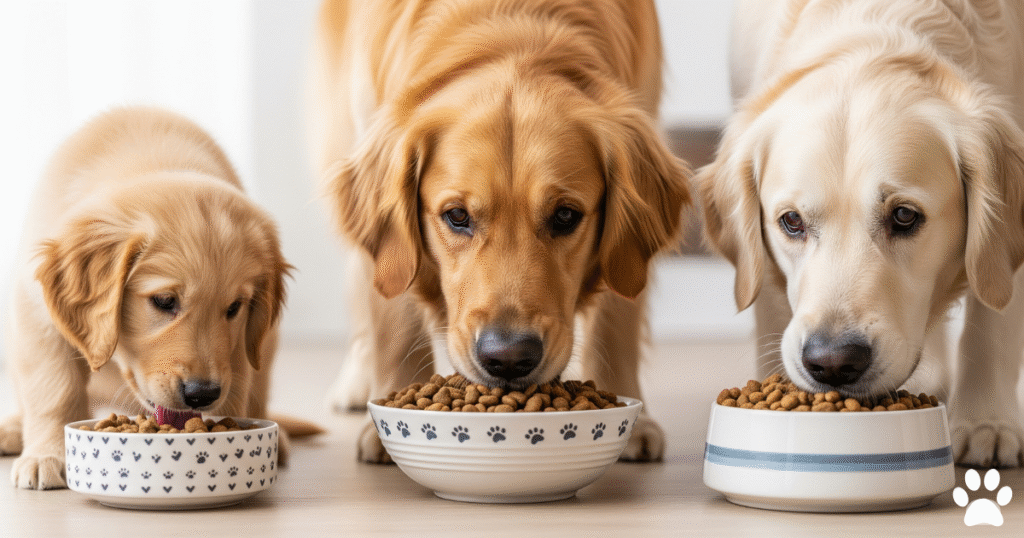
Links will be automatically removed from comments.